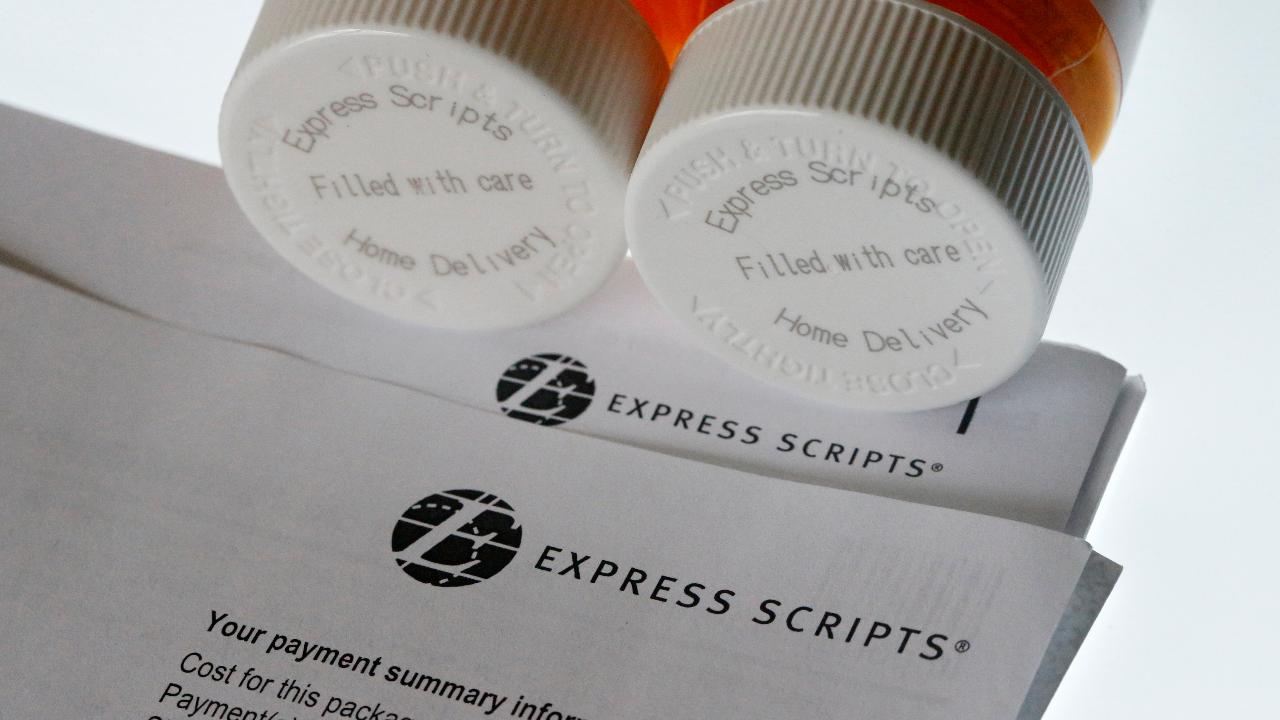DOJ nearing antitrust approval of health mergers combining CVS-Aetna, Cigna-Express Scripts
Justice Department antitrust enforcers are preparing to give the green light to two major deals in the health-care industry, CVS Health Corp.'s planned acquisition of health insurer Aetna Inc. and Cigna Corp.'s planned purchase of Express Scripts Holding Co., according to people familiar with the matter.
Both deals could receive formal antitrust approval as soon as the next few weeks, these people said.
The Justice Department has identified some competition concerns surrounding the nearly $70 billion CVS-Aetna deal, and the companies will be required to sell off assets related to Medicare drug coverage to resolve those concerns, people familiar with the deliberations said.
The size of the asset sales couldn't immediately be learned, but one potential buyer in talks for the assets is WellCare Health Plans Inc., people familiar with the matter said. Final discussions between CVS, Aetna and the Justice Department about asset sales are ongoing, these people said.
The department's approval of the $54 billion Cigna and Express Scripts combination could come without the government requiring the companies to sell off any assets, people familiar with that deal review said.
The two deals underscore how the health-care industry is changing, with the biggest players increasingly seeking to incorporate multiple lines of business, forming behemoths that stretch from insurance to pharmacy-benefit management to, in some cases, drugstores, clinics and physician practices.
The companies in both mergers will seek to prove that their combination of assets is best equipped to win over clients and consumers, which they have promised to do with more smoothly integrated care and services and better cost-curbing efforts.
Spokesmen for CVS and Aetna pointed to recent public remarks by CVS Chief Executive Larry Merlo, who said that the companies had "contemplated a range of possibilities" in the Medicare drug plan area and "determined the impact of any divestitures would not be material to the deal model."
Spokesmen for Cigna and Express Scripts cited previous statements in which they said they were working cooperatively with the Justice Department and were confident the merger would close by year's end.
Spokesmen for WellCare and the Justice Department declined to comment.
| Ticker | Security | Last | Change | Change % |
|---|---|---|---|---|
| CVS | CVS HEALTH CORP. | 78.35 | +2.02 | +2.65% |
| AET | NO DATA AVAILABLE | - | - | - |
| ESRX | NO DATA AVAILABLE | - | - | - |
| CI | THE CIGNA GROUP | 291.90 | +7.45 | +2.62% |
Behind the two deals looms UnitedHealth Group Inc., the parent company of the largest U.S. health insurer and a major pharmacy-benefit manager, as well as a growing array of physician practices, urgent-care clinics and other assets. Humana Inc. has also moved aggressively into the home care and hospice businesses, as well as forging closer ties to doctors, arguing it can better integrate and manage care for its Medicare members.
The CVS-Aetna deal, announced last December, would marry CVS's drugstores and large pharmacy-benefit-management business with the third-biggest U.S. health insurer. The companies have said they would use retail outlets to offer new, more convenient and efficient access to care.
The Cigna-Express Scripts combination, announced in March, will join an insurer with a strong focus on employers to a pharmacy-benefit manager that remains a giant player despite recent business challenges. The deal faced a challenge by activist investor Carl Icahn, but it easily won out in shareholder votes.
Analysts have generally praised the deal, saying it will increase Cigna's ability to manage care and costs. Cigna currently uses UnitedHealth's OptumRx for certain functions.
Both deals have also drawn criticism, including from the American Medical Association, which has voiced concerns that the mergers could substantially lessen competition in health care.
Although the merging companies in both deals are health-industry giants, they don't compete directly with one another in most of their core areas of business. Aetna, for example, already uses CVS to handle its pharmacy benefits.
The clearest overlap between Aetna and CVS comes in the sale of Medicare prescription drug coverage -- known as Part D plans -- and that's where the Justice Department has focused its concerns.
CVS has the largest market share in the Medicare drug plan business, with around 6.1 million members, according to a recent tally from Wells Fargo. Aetna is the fifth-biggest Part D seller with around 2.2 million members, according to Wells Fargo.
To preserve competition where CVS and Aetna sell Part D plans head-to-head, the Justice Department will require the companies to sell off parts of their Part D business to one or more companies that would compete with the newly merged firm, people familiar with the matter said.
Such divestitures had been expected by analysts and haven't been viewed as a major impediment to the deal, partly because the profits on the plans are limited.
While the Justice Department's antitrust enforcers focused on traditional issues of direct business overlap, they didn't find issues related to the vertical integration of CVS and Aetna, which have strong positions in different parts of the health care industry, nor with the vertical integration of Cigna and Express Scripts, according to people familiar with the matter.
Vertical concerns in the pay-TV industry prompted the department to challenge AT&T Inc.'s acquisition of Time Warner Inc., a case the government lost in June. The Justice Department is appealing that decision.
In public remarks in June, Justice Department antitrust chief Makan Delrahim said the government continued to recognize that vertical deals can produce efficiencies and benefits for consumers, even though it believed the AT&T deal didn't.




















